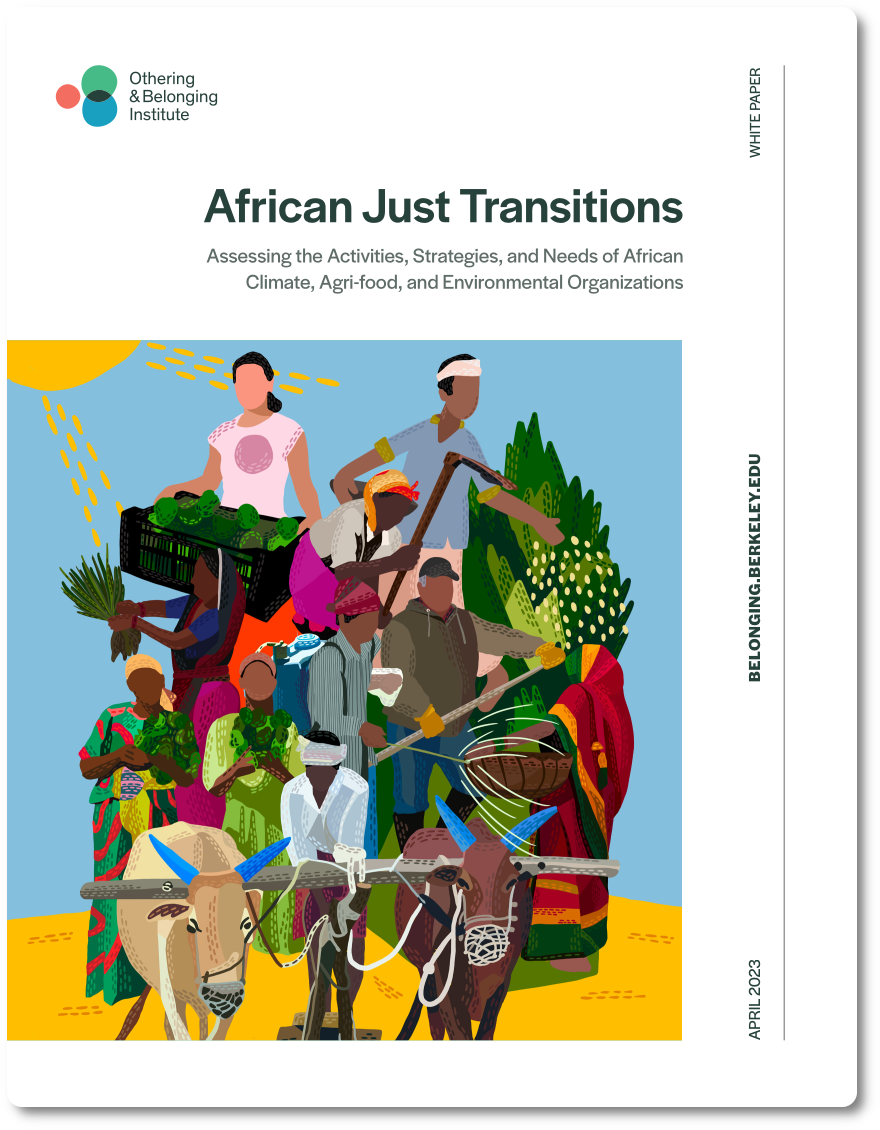BERKELEY, CA: The overwhelming majority of African climate, agri-food, and environmental organizations are working toward just transitions in Africa, and many are doing so through food systems transformation, a new study released by UC Berkeley's Othering & Belonging Institute found.
According to the survey findings released today of 51 African organizations conducted by OBI's Global Justice Program, most answered that they aim to foster regenerative economies by scaling up sustainable agriculture, and that they carry out community-based organizing and advocacy campaigns with farmers and rural populations, women, and youth.
In terms of how they frame their work, most answered that they use the frameworks and principles of food sovereignty and sustainable development to advance their work, while the survey as a whole revealed how the long term goals and needs of most organizations remain in alignment.
The results were released as part of a new white paper, titled, "African Just Transitions: Assessing the Activities, Strategies, and Needs of African Climate, Agri-food, and Environmental Organizations," which studies how African organizations are responding to the climate crisis, the support they require, and their demands on the international community.
Its release coincides both with the recently observed Earth Day (April 22) and the upcoming Africa Day (May 25), recognizing the dire situation facing the planet as a whole and the African continent in particular amidst the climate crisis, while also recognizing the significance of African-led strategies for building climate resilience and the need to support them.
According to the survey findings, more than 90 percent of African organizations answered that funding is the primary type of material support they need to achieve their organizational goals. At the same time, more than 60 percent believe the international community should stand up to multinational corporations that are exploiting their continent's natural resources.
In light of these findings, the paper advocates for climate reparations, beginning with the strengthening of a recently-adopted United Nations fund for countries harmed by extractive industries, as part of a larger approach to fostering just transitions in Africa and elsewhere.
This paper is part of a larger body of work from the Othering & Belonging Institute on climate justice work at different levels, from the local to the global.
You can also find more work from the Global Justice Program here.
Media Contact
Marc Abizeid
marcabizeid@berkeley.edu
###





